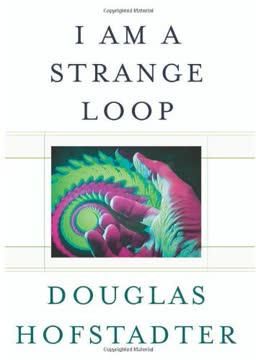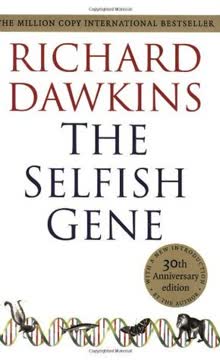つの重要なポイント
1. 進化が我々の道徳的本能を形作る
「我々の善悪に関する直感は、個人間の日常的な戦いのために設計された武器である。」
適応としての道徳。 善悪の感覚は、神によって与えられたものではなく、自然選択を通じて進化し、社会的な相互作用をナビゲートするために役立つようになった。我々が感じる道徳的な感情—罪悪感、恥、誇り、憤り—は、宇宙的な真実の反映ではなく、祖先が生き延び、繁殖するのを助けたツールである。
倫理的な意味。 この進化的な道徳観は、善と悪の本質について深い疑問を投げかける。我々の道徳的本能が単なる適応であるならば、倫理には客観的な基盤がないのだろうか?必ずしもそうではない。我々の道徳的直感の起源を理解することで、それらを批判的に検討し、より合理的で思いやりのある倫理システムを構築する可能性がある。
- 主要な道徳的感情とその進化的機能:
- 罪悪感:社会的な違反後の修復行動を促進
- 恥:社会的地位を低下させる行動を抑制
- 誇り:評判を高める行動を強化
- 憤り:規範違反者に対する集団的な罰を動員
2. 相互利他主義と血縁選択が人間の協力を説明する
「TIT FOR TATはその名の通りであった。最初の遭遇では協力し、その後は前回の遭遇で相手が行ったことを行う。」
協力の進化。 自己中心的な遺伝子の世界で協力が進化する方法を説明する2つの主要なメカニズム:
- 相互利他主義:「あなたが私の背中を掻けば、私もあなたの背中を掻く」
- 血縁選択:遺伝子を共有する親族を助ける
これらの戦略は、搾取のリスクを最小限に抑えながら協力の利益を享受することを可能にする。
家族の絆を超えて。 血縁選択は近親者に対する特に利他的な行動を説明するが、相互利他主義は非親族に対する協力行動を拡張する。これが複雑な人間社会の基盤を築いた。コンピュータシミュレーションでの「tit-for-tat」戦略の成功は、基本的な相互性が競争的な環境でも安定した協力を促進することを示している。
- 自然界における相互利他主義の例:
- 吸血コウモリの血液食の共有
- クリーナーフィッシュとその「クライアント」
- 人間の友情と社会的ネットワーク
3. 進化的圧力により男女の性的戦略が異なる
「男性は年に何百回も繁殖できるが、女性は年に一度しか繁殖できない。」
親の投資理論。 男性と女性の生物学的な繁殖能力の違いは、交配戦略に深い影響を与える。限られた卵と高い親の投資を持つ女性は、配偶者選びに慎重になる傾向がある。一方、豊富な精子と潜在的に低い親の投資を持つ男性は、複数のパートナーを求めることが多い。
現代の意味。 これらの進化した傾向は、避妊や一夫一婦制の規範がある社会でも人間の行動に影響を与え続けている。これらの違いを理解することで、以下のことが明らかになる:
-
デートのダイナミクスと求愛儀式
-
性的嫉妬のパターン
-
長期的な関係における対立
-
性的道徳における二重基準
-
男性と女性の交配戦略の主な違い:
- 子孫の量と質
- 短期的 vs. 長期的な交配志向
- 身体的魅力 vs. 資源の獲得
4. ステータス追求行動は人間の本性に深く根ざしている
「我々は皆、自己宣伝者であり、社会的な登攀者である。」
ステータスの進化的根源。 祖先の環境では、高い社会的地位は直接的に生存と繁殖の見込みを向上させた。その結果、我々は社会集団内でステータスを追求し維持する強力な心理的メカニズムを進化させた。
現代のステータス。 ステータスの形態は変わったが、その根底にある動機は依然として強力である。これにより、以下の現象が説明される:
-
企業の出世競争
-
学術的な名声の追求
-
ソーシャルメディアの行動
-
消費文化と顕示的消費
-
人間がステータスを追求し表示する方法:
- 富と資源の蓄積
- スキルと専門知識の育成
- 社会的なつながりと影響力の構築
- 寛大さや道徳的美徳の表示
5. 自己欺瞞は社会的相互作用において進化的な目的を果たす
「すべてを知ることはすべてを許すこと。行動を支配する力を見れば、行動者を非難するのは難しくなる。」
自己欺瞞の適応価値。 逆説的に、自分の動機を知らないことがそれを追求する上でより効果的になることがある。自己欺瞞は、他者に対してより説得力のある外見を示すことを可能にし、社会的成功を高める可能性がある。
自己認識の意味。 この視点は、完全な自己認識が常に望ましいまたは可能であるという考えに挑戦する。我々の心は、特定の動機を意識から隠すように設計されているかもしれない。
- 日常生活における自己欺瞞の例:
- 自分の能力やポジティブな特質を過大評価する
- 自分の嘘や誇張を信じる
- 利己的な行動を利他的と合理化する
- 自尊心を高める出来事の選択的記憶
6. 文化的規範と道徳コードは遺伝的自己利益から生まれる
「道徳コードは政治的妥協である。それは競合する利害関係者によって形作られる。」
文化的規範の進化。 文化的規範や道徳コードは、上から与えられるものではなく、社会内の競合する遺伝的利益の相互作用から生まれる。異なるグループ(男性対女性、若者対高齢者、高ステータス対低ステータス)は、自分たちの繁殖成功を促進する規範を推進する。
伝統の批判的分析。 この視点は、文化的伝統や道徳的絶対性に対するより微妙な見方を促す。長年の規範は重要な社会的機能を果たすことが多いが、時には時代遅れの権力ダイナミクスや環境条件を反映しているかもしれない。
- 文化的規範を形作る要因:
- 生態学的制約
- 技術と経済システム
- 社会グループ間の権力ダイナミクス
- 歴史的偶然
7. 自由意志は幻想だが、その信念は社会的機能を果たす
「すべてを知ることはすべてを許すこと。行動を支配する力を見れば、行動者を非難するのは難しくなる。」
決定論的視点。 科学的な観点から見ると、我々の行動は遺伝子、環境、およびそれらの複雑な相互作用の結果である。この因果連鎖の外に神秘的な「自由意志」の余地はない。
実際的な考慮事項。 しかし、自由意志と道徳的責任の信念は重要な社会的機能を果たす。それは我々の法制度を支え、多くの道徳的推論の基盤を形成する。これらの概念を完全に放棄することは、深刻で潜在的に破壊的な社会的影響をもたらす可能性がある。
-
決定論の主張:
- 無意識の意思決定に関する神経科学的証拠
- 自由意志と物理的因果性の論理的不整合
- 人間行動の科学的予測の成功
-
自由意志の信念の社会的機能:
- 個人的責任の奨励
- 罰と報酬システムの正当化
- 社会秩序と結束の維持
8. ダーウィンの洞察は伝統的な非難と罰の概念に挑戦する
「犯罪者を罰するのは正しいが、それは他者を抑止するためだけである。」
報復的正義の再考。 我々の行動が最終的には我々の制御を超えた要因の結果であるならば、道徳的な報いの概念は問題となる。これは報復的な正義の理論に挑戦し、予防とリハビリに焦点を当てたより功利主義的なアプローチを示唆する。
実際的な意味。 非難の概念を完全に放棄することは非現実的かもしれないが、人間行動のより微妙な理解は以下のことにつながる可能性がある:
-
より思いやりのある刑事司法システム
-
反社会的行動の根本原因に対処することへのより大きな重点
-
法的な狂気や能力の低下の概念の再評価
-
報復的正義の代替案:
- 修復的正義モデル
- リハビリテーションアプローチ
- 不平等と早期介入に対処する社会プログラム
9. 我々の進化的遺産を理解することで思いやりを促進できる
「ダーウィニズムは真実という言葉の意味そのものを疑問視する。」
ダーウィン的倫理の逆説。 進化心理学は我々の道徳的本能の自己中心的な性質を明らかにする一方で、道徳的関心の輪を広げる基盤も提供する。我々の内集団の好みの恣意的な性質を理解することで、それを克服するために努力することができる。
思いやりの育成。 我々の共有する進化的遺産と人間行動を形作る普遍的な動機を認識することで、より大きな共感と理解を育むことができる。この科学的視点は、共通の人間性に基づく世俗的な倫理の基盤を提供する可能性がある。
- 進化的洞察が思いやりを促進する方法:
- 人間の欲望と恐怖の普遍性を認識する
- 行動を形作る環境的および遺伝的要因を理解する
- 人間の動機の複雑さを評価する
- 表面的な文化的違いを超えて見る
人間中心の倫理的思考:
- 善悪の単純な概念を超える
- 道徳的責任に対するより微妙なアプローチを開発する
- 我々の進化した本性に合致しながらも、より高い倫理的目標を目指す社会システムを構築する
最終更新日:
FAQ
What's The Moral Animal about?
- Exploration of Evolutionary Psychology: The Moral Animal by Robert Wright examines how Darwinian principles shape human behavior, emotions, and social structures through the lens of evolutionary psychology.
- Human Nature and Morality: The book delves into the complexities of human morality, suggesting that our moral instincts are influenced by self-interest and the need for social status.
- Cynicism and Self-Deception: Wright addresses the darker aspects of human nature, including self-deception and cynicism, which arise from recognizing our evolutionary motivations.
Why should I read The Moral Animal?
- Insightful Perspective: The book offers a fresh lens to view human behavior, linking it to evolutionary principles and encouraging reflection on personal and societal norms.
- Challenging Conventional Morality: Wright presents evidence that many moral sentiments have evolutionary roots, provoking thought and discussion about modern morality.
- Engaging and Accessible Writing: Wright's style makes complex scientific concepts accessible and engaging, combining storytelling with scientific analysis.
What are the key takeaways of The Moral Animal?
- Evolution Shapes Morality: Our moral instincts and behaviors are deeply influenced by evolutionary pressures, helping us navigate moral dilemmas.
- Self-Deception is Pervasive: Self-deception serves to protect self-image and social standing, highlighting the need for self-awareness.
- Importance of Kinship and Altruism: Kin selection and reciprocal altruism drive our relationships, emphasizing genetic imperatives in social bonds.
What are the best quotes from The Moral Animal and what do they mean?
- "Natural selection doesn't care.": This underscores the idea that natural selection prioritizes genetic survival over individual well-being.
- "The ultimate unit of selection is the gene.": Evolution operates at the gene level, shaping behaviors that enhance gene propagation.
- “The mind is a place of turbulence, much of it subterranean.”: This suggests that much of our behavior is driven by unconscious evolutionary motives.
What is evolutionary psychology as discussed in The Moral Animal?
- Definition and Scope: Evolutionary psychology studies how natural selection influences human thought, behavior, and emotions.
- Focus on Adaptations: It examines psychological traits as adaptations evolved to solve survival and reproduction problems.
- Interdisciplinary Approach: Wright integrates biology, anthropology, and psychology to provide a comprehensive understanding of human behavior.
How does The Moral Animal explain monogamy?
- Monogamy as a Strategy: Wright discusses monogamy as a reproductive strategy evolved to ensure paternal investment in offspring.
- Sexual Selection Dynamics: The book explores how sexual selection influences male and female behaviors, with men seeking multiple partners and women prioritizing long-term investment.
- Cultural Influences: Societal norms and cultural practices shape marriage, reflecting underlying evolutionary pressures.
What role does kin selection play in The Moral Animal?
- Definition of Kin Selection: Kin selection explains how natural selection favors behaviors that help relatives, increasing shared genes' survival.
- Altruism Among Relatives: Humans are predisposed to care for kin, enhancing genetic lineage survival.
- Implications for Family Dynamics: Understanding kin selection sheds light on familial relationships, parental investment, and sibling interactions.
How does The Moral Animal address sibling rivalry?
- Evolutionary Perspective: Sibling rivalry is seen as competition for limited parental resources.
- Genetic Interests: Siblings compete for attention and resources, influencing survival and reproductive success.
- Behavioral Outcomes: This rivalry shapes complex emotional dynamics within families, affecting relationships and behaviors.
How does The Moral Animal explain self-deception?
- Self-Deception as an Evolutionary Strategy: It serves adaptive purposes, like maintaining social status and self-esteem.
- Unconscious Motivations: Many motivations are unconscious, leading to rationalizations aligning with self-image.
- Implications for Relationships: Recognizing self-deception can improve honesty and transparency in relationships.
What is the relationship between morality and evolution in The Moral Animal?
- Morality as an Evolutionary Tool: Morality is shaped by evolutionary pressures to enhance social cooperation and gene propagation.
- Moral Sentiments and Self-Interest: Moral instincts often serve self-interested purposes, seen in reciprocal altruism and social status dynamics.
- Cultural Variability of Morality: While moral principles may be universal, their expressions vary across cultures, reflecting human adaptability.
How does The Moral Animal relate to modern social issues?
- Understanding Human Conflict: Insights from evolutionary psychology explain contemporary social conflicts, including inequality and cooperation.
- Application to Relationships: Kin selection and reciprocal altruism provide frameworks for understanding familial and social relationships.
- Implications for Policy and Society: Recognizing evolutionary roots of behavior can inform public policy, fostering cooperation and reducing conflict.
What are the criticisms of the ideas presented in The Moral Animal?
- Concerns About Determinism: Critics argue evolutionary psychology can lead to genetic determinism, downplaying culture and individual choice.
- Simplification of Complex Behaviors: Some contend the book oversimplifies behavior by attributing it primarily to evolutionary pressures.
- Ethical Implications: Using evolutionary explanations could justify harmful practices or reinforce stereotypes, particularly regarding gender roles.
レビュー
本書『The Moral Animal』は進化心理学を探求し、ダーウィンの視点から人間の行動を考察している。読者はこの本を刺激的で、よく書かれており、洞察に富んでいると評価し、ライトの複雑な概念を説明する能力を称賛した。多くの人々はダーウィンの伝記と心理学理論の織り交ぜ方を高く評価した。一部の読者は本書の情報が古いことや結論における時折の過剰な主張を批判した。ある人々は本書をシニカルだと感じたが、他の人々は人間の本質を探求する貴重な書と見なした。本書の道徳や自由意志に関する挑戦的なアイデアは、読者の間で感謝と不快感の両方を引き起こした。
Similar Books
















